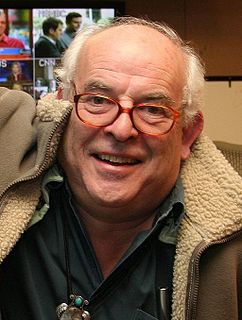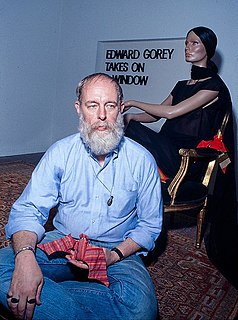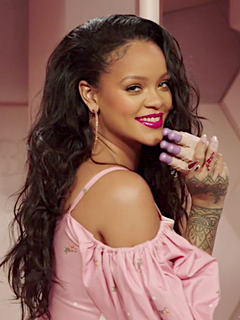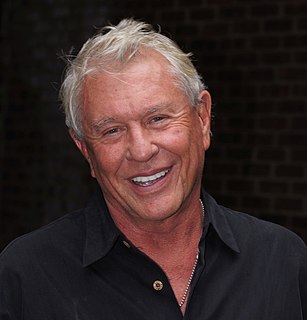A Quote by Ralph Steadman
There's no such thing as a mistake, really. It's just an opportunity to do something else.
Quote Topics
Related Quotes
And I also know that pain can seem like an endless ribbon. You pull it and you pull it. You keep gathering it toward you, and as it collects, you really can't believe that there's something else at the end of it. Something that isn't just more pain. But there's always something else at the end; something at least a little different. You never know what that thing will be, but it's there.
A man must be big enough to admit his mistakes, smart enough to profit from them, and strong enough to correct them. This sequence is something that all achievers have in common. They do not see a mistake is as their failure; rather it is simply a learning experience. Achievers view a mistake as an opportunity to do something over again and do it right the second time. A mistake is simply the price they pay to achieve success.
One of the greatest handicaps is to fear a mistake. You have stopped yourself. You have to move freely into the arena, not just to wait for the perfect situation, the perfect moment... If you have to make a mistake, it's better to make a mistake of action than one of inaction. If I had the opportunity again, I would take chances.
I think it's really easy to just get caught up in what everyone else is doing, so I think the most important thing to remember is to be really strong in your own shoes. That is the main thing for me. The one thing that kind of gets in my way sometimes is when I'm a little too aware of everybody else.
I think we all mistake certain things for happiness. I think we mistake comfort for happiness and we mistake pleasure for happiness, and entertainment for happiness, when really these are just things we use as proxies for our happiness. We use them to cheer us up or try and achieve brief happiness, when really happiness is something much more profound and long lasting and exists within us.
Marriage is a really scary thing. I'm excited about it. I know it's not a mistake, it's the absolute right thing to do. I'm really happy about it. I really, really love my fiancee. We're good friends and I think it's going to work. But that's just the point - it's going to take work. It does make me feel vulnerable to be like, wow, I'm committed to this person for the rest of my life.
Whereas if you were writing an op-ed piece or an essay, somebody would be asking, "What's your point?" With poetry you can stay in a moment for as long as you want. Poetry is about metaphor, about a thing standing in for something else. It's the thing that opens out to something else. What that something else is changes for readers. So what's on the page - it falls away.
If you're worried about messaging, people will just move to something else. You know if you legislate against Facebook and Apple and Google and whatever else in the US, they'll just use something else. So are we really safer then? I would say no. I would say we're less safe, because now we've opened up all of the infrastructure for people to go wacko at.



































